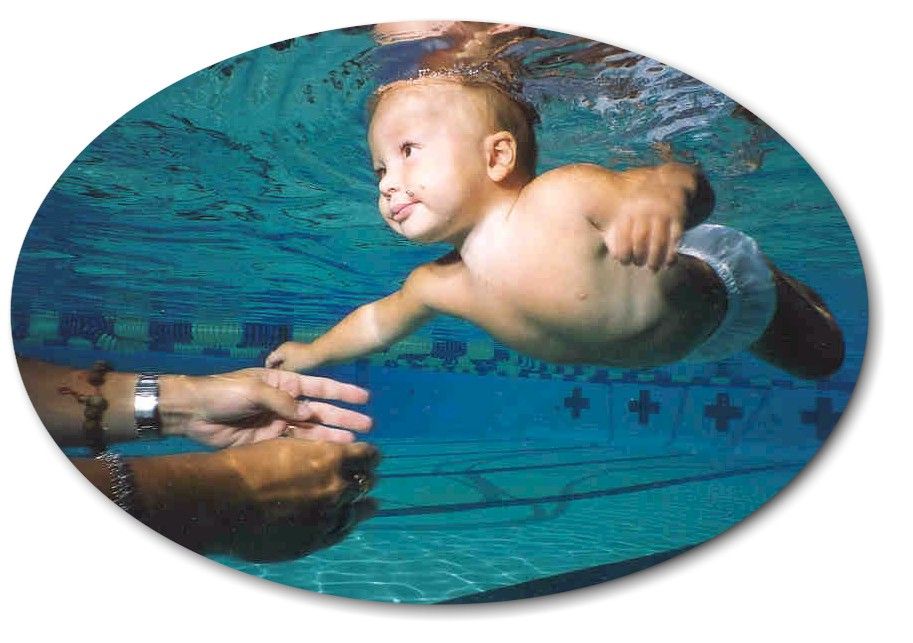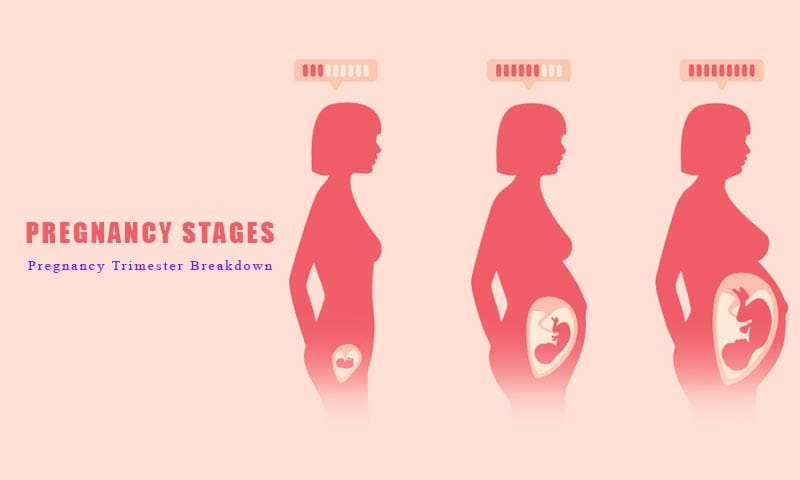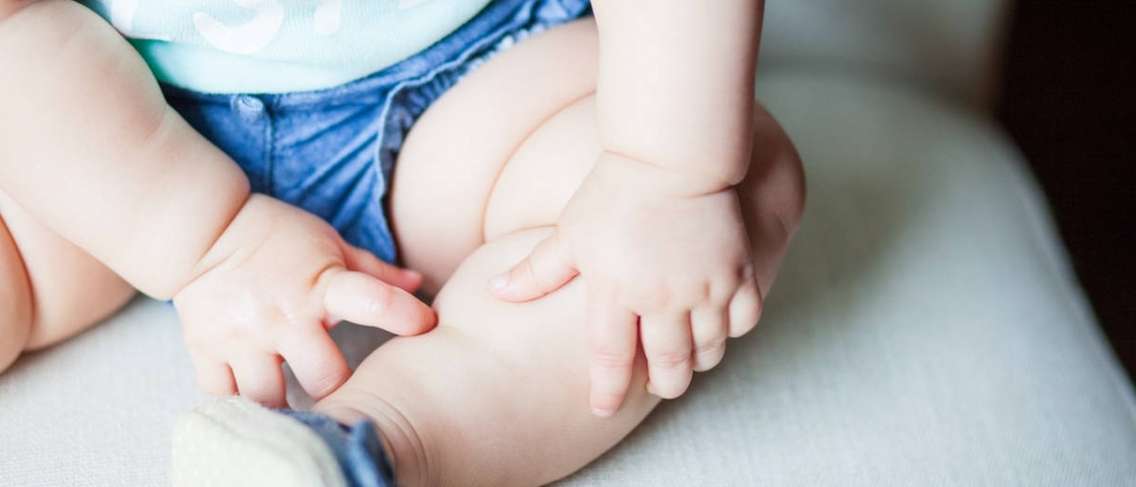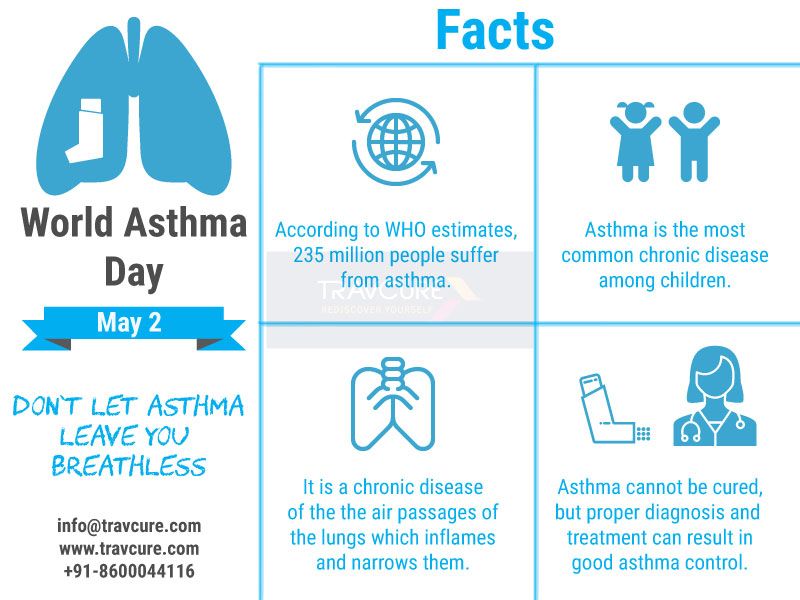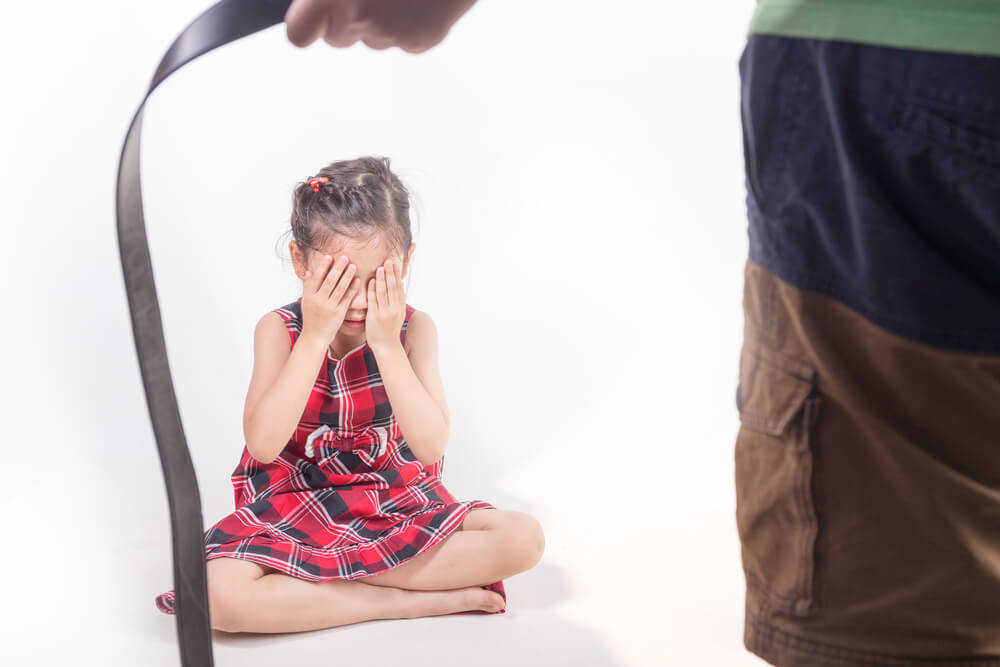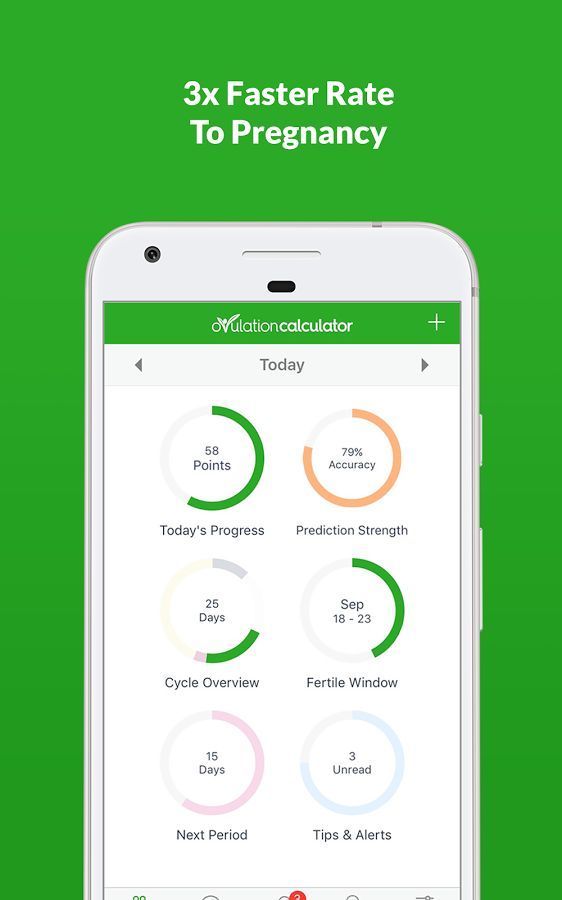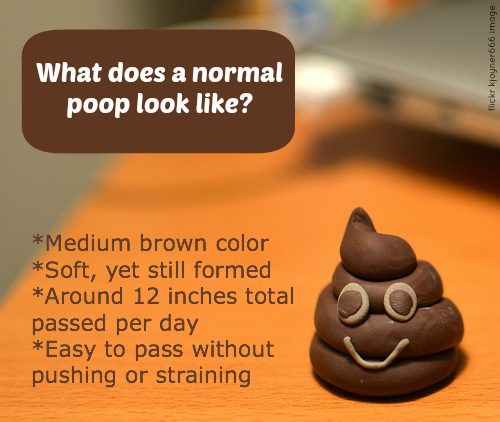At what age can babies swim
Infant Swimming: When Can a Baby Start Swimming?
Playing in the water, whether it's learning to swim or just splashing and paddling, is lots of fun for babies and young children. And knowing how to swim is an important skill that can help keep your child safe all through life. That's why getting started with swimming lessons once your child is old enough is a smart strategy. Even if your baby isn’t ready just yet, you might consider doing water play to get her primed for swimming lessons in the future.
Find out when you might start your little one on swimming lessons, and the signs of readiness to look for.
Water safety is a top priority at every age and stage. Read on for some essential water safety advice that you should follow whenever your baby, toddler, or preschooler is in or near water.
When Can You Take Your Baby Swimming?
Experts recommend that you can start taking your little one to parent-child swimming classes as early as age 1. Because every child is different, though, you may find your little one isn’t ready to start swimming lessons until a little later.
It’s important to know that newborns and infants younger than 12 months old aren’t yet able to raise their heads above the water to breathe, so swimming lessons aren’t yet appropriate for them.
In your baby’s first year, you might like to do parent-child water play classes with your baby to help him get used to being in water. This can
get him accustomed to being in a pool
be an opportunity for bonding as you play together in the water
help him get over any fears he may have of being in the water.
When deciding when to start your child on swimming lessons, take into account his
emotional maturity
physical and developmental abilities or limitations
interest in learning to swim
comfort level in water.
Most children are ready for regular swimming lessons by the age of 4 when they can grasp basic skills such as
floating
treading water
finding a way out of the water.

If you’re ever unsure when to start your child on swimming lessons, ask your child’s healthcare provider for personalized advice.
Benefits of Swimming Lessons
Knowing how to swim is very important, as it can help prevent drowning. Studies have shown that swimming lessons can help reduce the drowning risk for toddlers and young children between the ages of 1 and 4, so you may like to take this into account when deciding when to start your little one on lessons.
Still, know that swimming lessons don’t make your child “drown proof.” You will need to carefully supervise your child whenever she is in or near water. And, if you have a pool at home, it's crucial to block access when you’re not there to supervise. You can learn more about this in our section on water safety.
On the bright side, swimming and water play can be fun activities for your child. Like many sports, swimming can help build confidence and it can be a steppingstone for developing other life skills.
What Kind of Swimming Lessons Should You Enroll Your Child In?
Toddlers and young children may benefit from classes that focus on swim readiness skills. Parents are often included in these classes, and can pick up pointers on how to safely supervise their child.
By the time children turn 4 years old, they are usually ready for standard swimming lessons. These would include learning stroke techniques as well as water survival skills such as
getting back to the water’s surface from under water
propelling a minimum of 25 yards
getting out of the water.
When choosing a swimming instructor for your child, check that the instructor
is qualified and certified to teach swimming
will give you the chance to observe a lesson in action before you make a decision
offers an atmosphere that is appropriate to your child’s age and development
encourages safe habits such as never swimming alone or without permission from an adult
can teach your child what to do if he falls into water by accident
allows you to be near or alongside your child in the water
requires your child to take multiple lessons so that there is noticeable progress
evaluates how your child is progressing and gives you feedback after lessons.
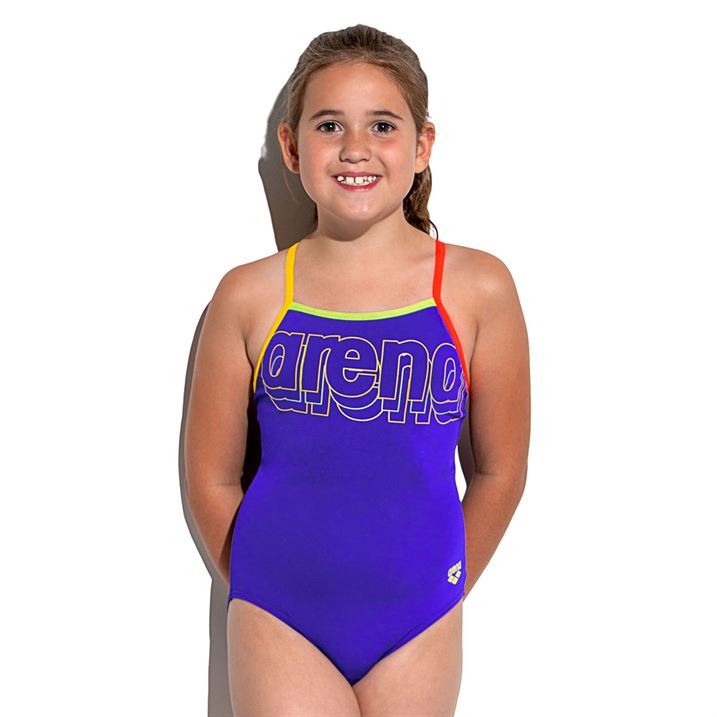
Besides all of this, you should check out the swimming facility firsthand. Ensure that the water is clean, disinfected, and chlorinated. Ideally, the water would be heated to between 87 and 94 degrees Fahrenheit. Water temperature is especially important for children under the age of 3, who are at a higher risk of hypothermia.
To locate good quality swimming instruction near you, check with the American Red Cross or your local YMCA.
How Do You Ensure Water Safety for Your Child?
Providing constant, focused supervision is the most important thing you can do for baby or young child who is learning to swim or is in or near water.
Childhood drowning is more common than you might think, and young children can drown in just an inch or two of water. It pays to be extra vigilant when your child is around water.
Here are some important steps to take to help keep your child safe when she is swimming or is anywhere near water:
Always give your child your undivided attention.
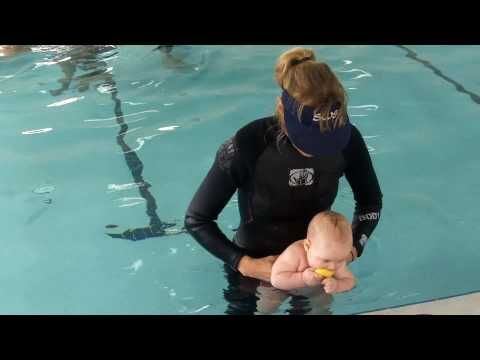 Don’t think that because there’s an on-duty lifeguard by the pool or at the beach that you can read a book or use your smartphone.
Don’t think that because there’s an on-duty lifeguard by the pool or at the beach that you can read a book or use your smartphone.Don’t drink alcohol or use drugs when supervising your child
If your child is learning swimming at a younger age, it will be important for you to do “touch supervision,” which entails you being close by or joining her in the pool
Don’t leave your child in the water under the supervision of another child
If you’re hosting or attending a pool party, assign the job of a “water watcher” to someone who can keep a constant eye on the children in the pool. Rotate the job in shifts so someone else can take over the responsibility after a short time. Make sure that the water watcher knows CPR and knows how to swim.
Keep an extra close watch on toddlers and young children between the ages of 1 and 4 as they are at the highest risk of drowning. If your child is in this age range, she’s naturally very curious and can easily sneak away from you even when it’s not swimming time.
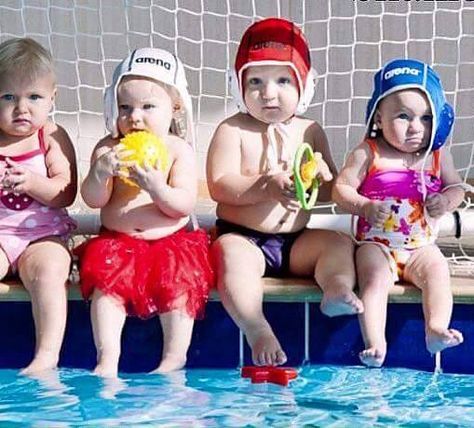 This is why it’s important to secure your home swimming pool if you have one.
This is why it’s important to secure your home swimming pool if you have one.If you’re at the beach, a lake, or a river, make sure your child wears a life jacket that fits properly and has been approved by the U.S. Coast Guard. If your child isn’t a strong swimmer, she may also need to wear a life jacket at the pool or water park.
Be prepared to respond if your little one’s in trouble in the water. It’s a good idea for you to learn CPR and rescue techniques. Classes are available through the American Red Cross and the American Heart Association. Your local fire department and other community organizations may also offer first-aid classes.
Keep in mind that whenever your child is swimming outdoors you should also make sure that her skin is protected from the harmful effects of the sun with sunscreen.
Home Swimming Pool Safety
If you have a swimming pool at home, you'll need to follow certain rules while it’s in use and keep it secured when it’s not being used.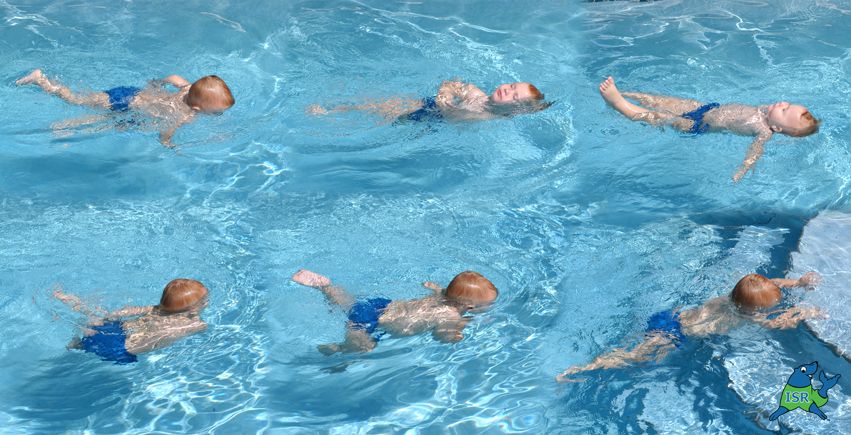
When your swimming pool is in use, follow these guidelines:
Don’t let children run around the pool or push one another into the pool
Don’t let your child use an inflatable mattress or floating toy, as he may slip off it into deep water or it may deflate unexpectedly, endangering your child’s safety
Make sure that the deep and shallow ends of your pool are marked, and never let your child dive into the shallow end
Remove the pool cover completely before letting anyone swim
Don’t let your child walk on the pool cover while it’s covering the pool, as he could accidentally fall in the pool and get trapped underneath
Make sure your pool’s drain covers are properly maintained, as suction from drains can trap swimmers. You may even consider installing anti-entrapment drain covers
It’s a good idea to have a safety ring connected to a rope or a shepherd’s hook near your swimming pool.

Here’s how to keep your swimming pool secured when not in use:
Surround your pool (including above-ground and inflatable pools) with a fence on all sides
The fence should be a minimum of four feet high and have no opening in the slats wider than four inches
The gate of the fence should be self-closing and self-latching. The latch should be at least 54 inches above the ground, and the gate should open away from the pool.
Make sure that the gate is always securely locked
It’s a good idea to keep your pool covered, but a pool cover should never replace the use of a fence
Check your local laws to find out whether there are any additional safety requirements for your home swimming pool
Don’t leave toys in or around the pool, as these are enticing to children even when it’s not swimming time
If you have a spa, hot tub, or whirlpool, keep it covered and locked when not in use.
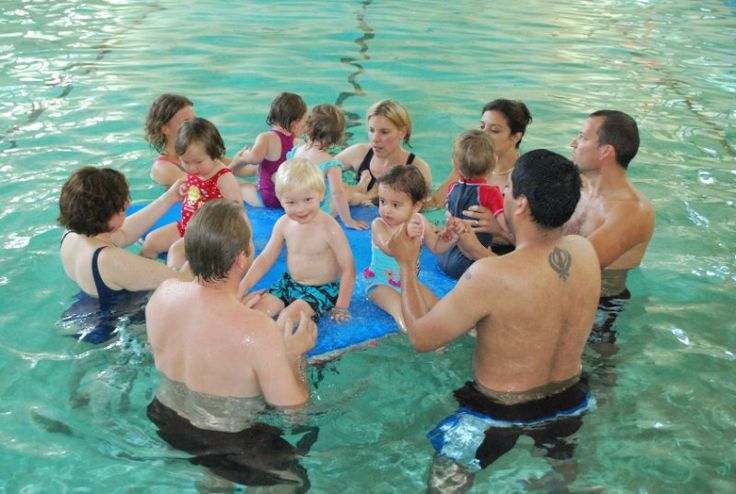 Keep in mind that children under the age of 5 should not be allowed to use these to help reduce the risk of drowning or overheating. Also, remember: Never leave your baby or child unattended in the bathtub not even for a moment.
Keep in mind that children under the age of 5 should not be allowed to use these to help reduce the risk of drowning or overheating. Also, remember: Never leave your baby or child unattended in the bathtub not even for a moment.
Enrolling your little one in swimming lessons once he’s old enough can give your child lifelong skills and confidence in the water. Even in your baby’s first year, you can consider water play classes to familiarize your baby with water and to set the stage for learning to swim.
Whether your little one is playing on a beach, splashing in a tub, or paddling in a pool, remember to always practice good water safety habits. Enjoy this time together!
How we wrote this article The information in this article is based on the expert advice found in trusted medical and government sources, such as the American Academy of Pediatrics and the American College of Obstetricians and Gynecologists. You can find a full list of sources used for this article below.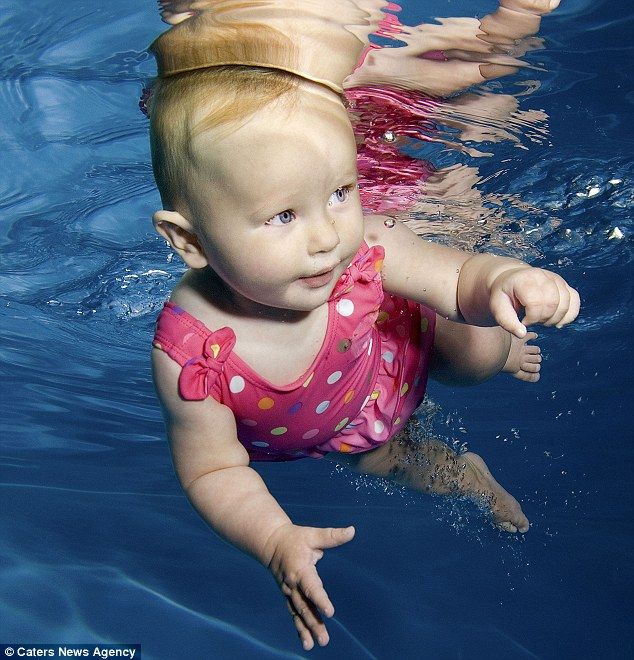 The content on this page should not replace professional medical advice. Always consult medical professionals for full diagnosis and treatment.
The content on this page should not replace professional medical advice. Always consult medical professionals for full diagnosis and treatment.
Babies and swimming | Pregnancy Birth and Baby
beginning of content4-minute read
Listen
Teaching your child to swim will help keep them safe and can be lots of fun. Even young babies can go in a pool, but make sure you follow these tips to look after them when you take them swimming.
When can my baby start to swim?
Newborn babies can’t swim — they have to learn, just like they learn to walk. But most babies enjoy being in water and their reflexes mean they will be able to do primitive swimming strokes.
Babies can go into water from birth. However, they can’t regulate their temperature like adults, so it’s very important to make sure they don’t get too cold.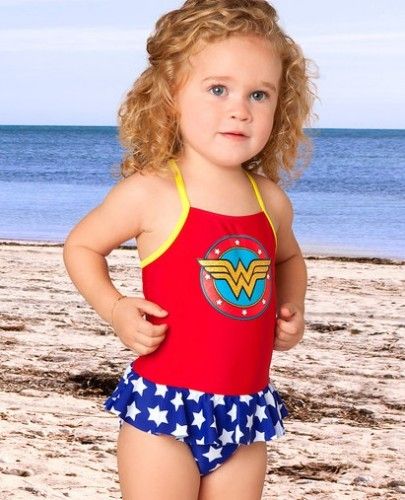 Babies can also pick up an infection from water.
Babies can also pick up an infection from water.
Therefore, it’s generally best to wait until your baby is around 2 months old before you take them swimming. You don’t have to wait until your baby is immunised to take them swimming.
If your baby is younger than 6 months, make sure the pool is heated to about 32° C. A large public pool would be too cold for a baby under 6 months.
New mothers should not go swimming until at least 6 weeks after the birth, or when they have stopped bleeding.
Safety precautions
There are lots of risks for babies and young children around water. Babies can drown in just 5cm of water. To keep them safe, never, ever leave young children unattended near water. It is a good idea to learn resuscitation for babies before you take them swimming. You can learn this by doing a first aid course.
If you have a pool or spa, it is important to make sure it is fenced according to the Australian Standard.
It is also important to be careful when using flotation devices such as rubber rings – they can tip over and make the baby’s head go underwater.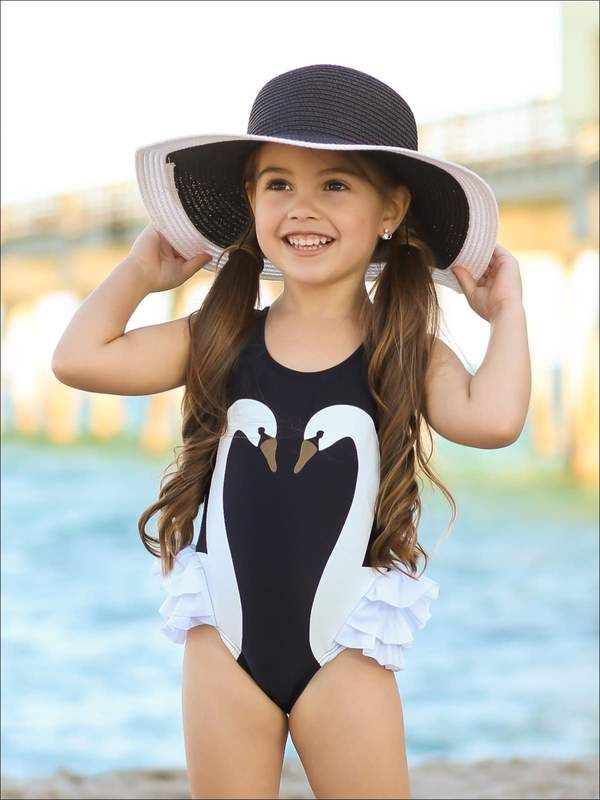
Babies can get ill from bacteria or viruses in water that hasn't been treated properly. Try not to let them swallow any water. Use swim nappies, and don't take them swimming if they have diarrhoea.
If you are swimming outside, make sure your baby is protected from the sun with clothing that blocks out ultraviolet light.
Where can my baby swim?
It’s best to get your baby used to the water at home in the bath. You don’t have to put them under the water – just let them get to enjoy floating (while you hold them) and the feel of the water on their skin.
From about 2 months you can take them into a heated pool, but don’t keep them in the water for more than 10 minutes at first. If they start to shiver, take them out and wrap them in a towel. Babies under 12 months shouldn’t stay in a pool for more than 30 minutes.
It’s OK to take your baby into a river, lake or the ocean from 2 months, but it’s very important to make sure they don’t get cold. Choose a spot where the water is warm and clean.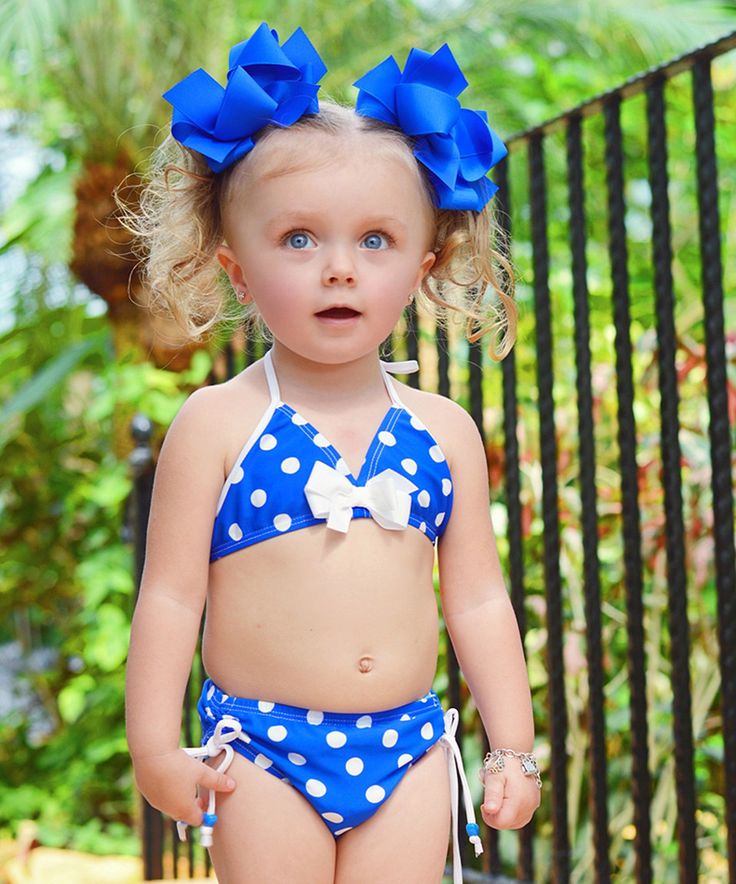 Watch out for currents that prevent you from holding them properly. And don’t let your baby drink the water.
Watch out for currents that prevent you from holding them properly. And don’t let your baby drink the water.
Young children should not go into hot spas. Spas are only suitable for children over 16.
About swimming lessons
Baby swim classes are designed to get your baby used to the water, help them learn swimming strokes, and teach them safety and how to survive in the water. Baby swimming lessons generally start at around 6 months.
Usually lessons involve a small group of parents and babies who learn through fun activities and play.
You can find swimming classes in your area by asking at your local pool or visiting the AUSTSWIM website.
Swimming clothes for babies
Before you take your baby swimming, you will need a swim nappy, which has snug-fitting legs and waistbands to contain your baby’s poo. Swim nappies are not designed to contain urine.
A swim nappy is necessary to ensure your baby’s poo does not enter the pool. If poo gets into the swimming pool, it will need to be closed down immediately and cleaned.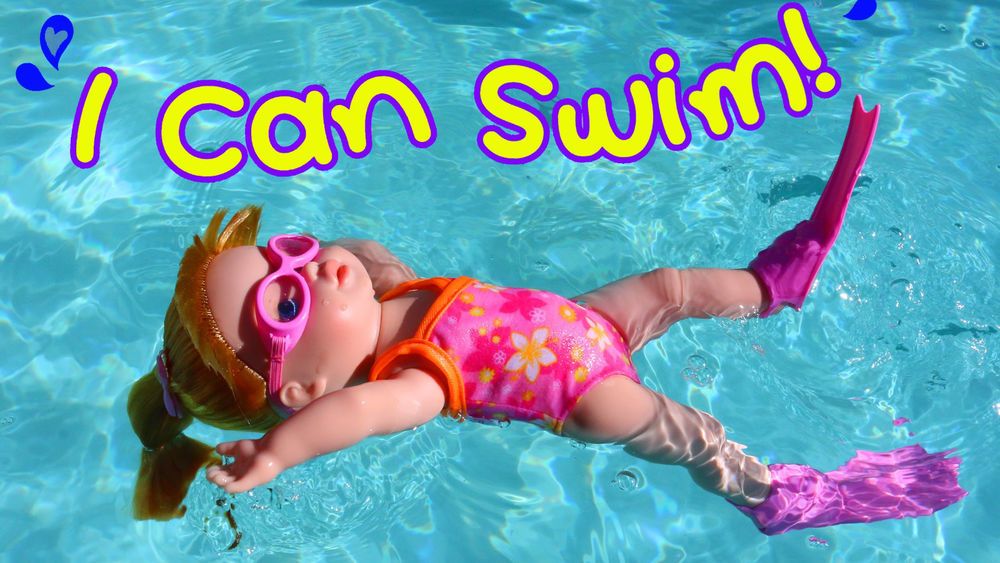 Public swimming pools often require babies to wear a swim nappy.
Public swimming pools often require babies to wear a swim nappy.
There are 2 main types of swim nappies:
- Disposable swim nappies. These are like normal disposable nappies but they won’t swell up in the water.
- Reusable swim nappies. These are made from stretchy bathing suit material, which allows water to escape, but will contain any solids. Some have a water-proof layer inside the nappy – like plastic pants. Others have an inner mesh layer.
You will also need:
- a towel
- change mat
- nappy bag
- a snack or bottle for afterwards
More information
Kidsafe Queensland – When is the right time to take my baby swimming?
AUSTSWIM – (Parents - FAQs)
Sources:
Babycenter Australia (Swimming with your baby), Babycenter Australia (When can my baby go in oceans, lakes, or rivers?), Sydney Children’s Hospitals Network (Be water safe), Australian Swim Schools Association (Information for parents), Raising Children Network (Swimming pool hygiene), AUSTSWIM (Parents - FAQs), Kidsafe Queensland (When is the right time to take my baby to swimming lessons?), Babycenter Australia (Buying a swim nappy)Learn more here about the development and quality assurance of healthdirect content.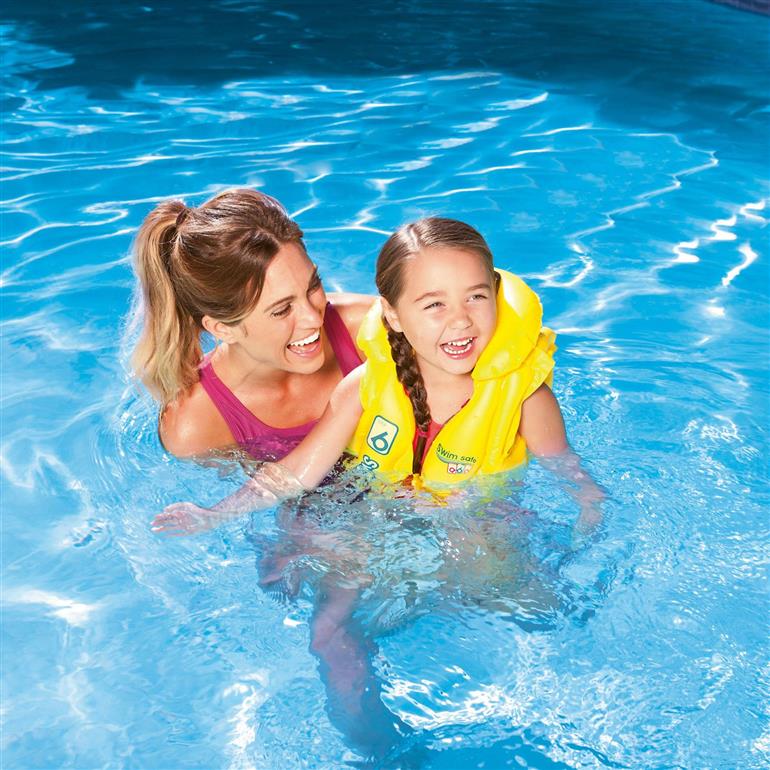
Last reviewed: December 2020
Back To Top
Related pages
- Resuscitation for babies and children
- Sun protection for babies and kids
- Water safety for babies
This information is for your general information and use only and is not intended to be used as medical advice and should not be used to diagnose, treat, cure or prevent any medical condition, nor should it be used for therapeutic purposes.
The information is not a substitute for independent professional advice and should not be used as an alternative to professional health care. If you have a particular medical problem, please consult a healthcare professional.
Except as permitted under the Copyright Act 1968, this publication or any part of it may not be reproduced, altered, adapted, stored and/or distributed in any form or by any means without the prior written permission of Healthdirect Australia.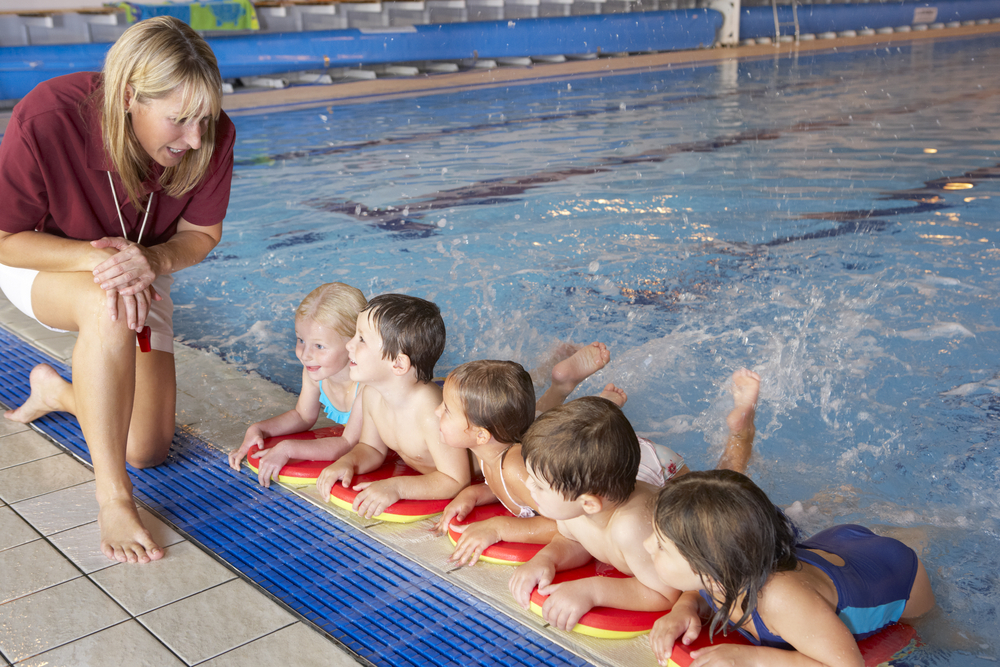
Support this browser is being discontinued for Pregnancy, Birth and Baby
Support for this browser is being discontinued for this site
- Internet Explorer 11 and lower
We currently support Microsoft Edge, Chrome, Firefox and Safari. For more information, please visit the links below:
- Chrome by Google
- Firefox by Mozilla
- Microsoft Edge
- Safari by Apple
You are welcome to continue browsing this site with this browser. Some features, tools or interaction may not work correctly.
At what age can a child be given for swimming
Swimming is one of the oldest sports that actively helps a person to develop comprehensively.
It not only increases the stamina of the body, but also develops strength of mind. Swimming is undoubtedly beneficial for children, as it promotes both growth and the correct formation of posture, because during training all muscle groups are involved, which naturally has a very beneficial effect.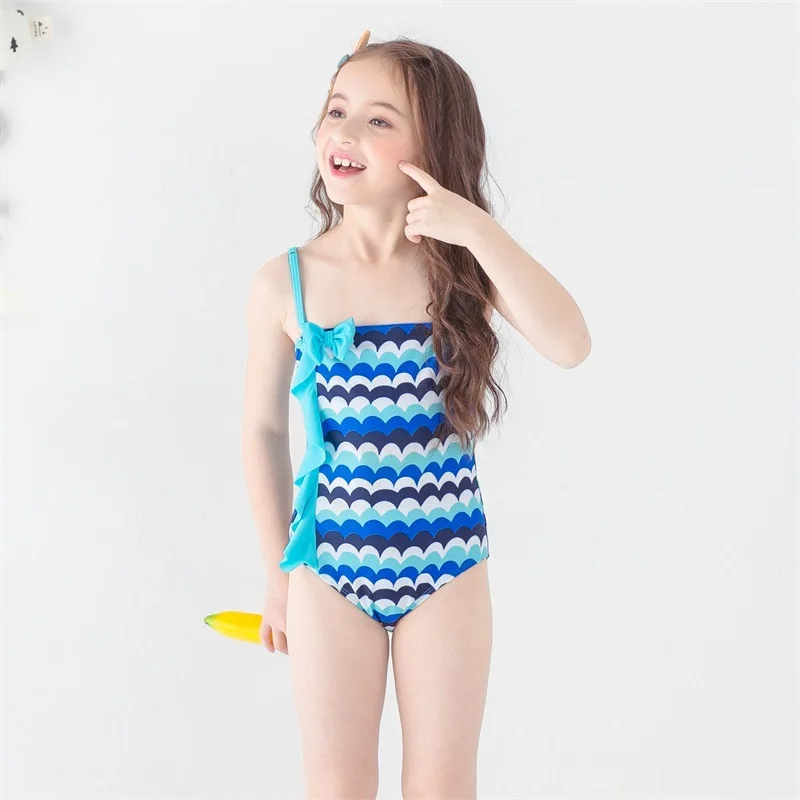
Swimming lessons for children from 2 to 5 years old
Lessons in the pool for small children up to 3 years old are always held individually. During such training, the child will be in constant contact with the instructor. With the help of such activities, it will be possible to accustom the child to being in the pool, since many children at this age, to varying degrees, are afraid of water. In the process of training, fears will pass and health will be significantly strengthened. It is worth remembering that classes, especially at such a young age, should be regular, since breaks of a month or more lead to the inevitable loss of skills. However, the positive attitude of the child to water will already be formed, which is important in itself.
Most swimming coaches believe that a child should start playing this sport at an early age - from the age of three. At this time, the baby's posture continues to form and the pool will provide invaluable benefits to the spine.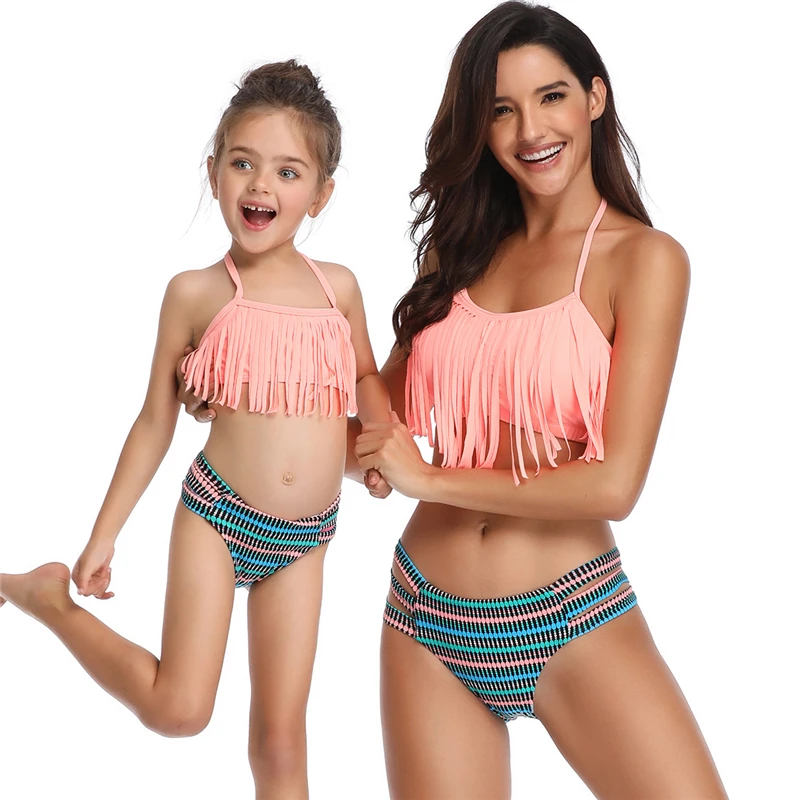 It is worth noting that the pool for children from 3 years old is just a pleasant pastime, since at this age it will not be possible to start swimming professionally. Since swimming is an intense sport, experts recommend attending training during this period no more than twice a week.
It is worth noting that the pool for children from 3 years old is just a pleasant pastime, since at this age it will not be possible to start swimming professionally. Since swimming is an intense sport, experts recommend attending training during this period no more than twice a week.
At this age, while in the pool, children use special sports equipment that helps them to better float on the water and master basic skills.
Swimming lessons for preschoolers aged 5 and up
Swimming classes for children aged 5 and over will help grow a real champion, since it is at this age that children are accepted into professional sections. The child is now just beginning to understand that this is not just entertainment, but a serious sport. And if the child himself wants to engage in the sports section and participate in competitions, then it's time to bring him to the pool. The number of lessons in the pool for children 5 years old should gradually increase from twice a week to five. In order for a young swimmer to be able to perform intense physical exercises, parents must understand that he must be provided with a complete balanced diet.
In order for a young swimmer to be able to perform intense physical exercises, parents must understand that he must be provided with a complete balanced diet.
5 years is the age when a child can also be sent to learn to swim from scratch. The swimming school provides classes both in a group (as a rule, according to the level of training) and individual training. The child is under the constant supervision of the coach - the groups are formed small so that all swimmers have enough time and attention. Children who start learning to swim at this age quickly catch up with those who start learning at 2-3 years old.
Swimming lessons for children aged 7 to 9years
Along with the first classes in a comprehensive school, the child can easily start swimming. Accordingly, from the second grade and older. At this time, he becomes more disciplined, which makes it easier for him to go to the pool. If effort is also applied to this quality, then the child easily compares the tasks of the coach with the tasks of school teachers and quickly moves towards tangible results.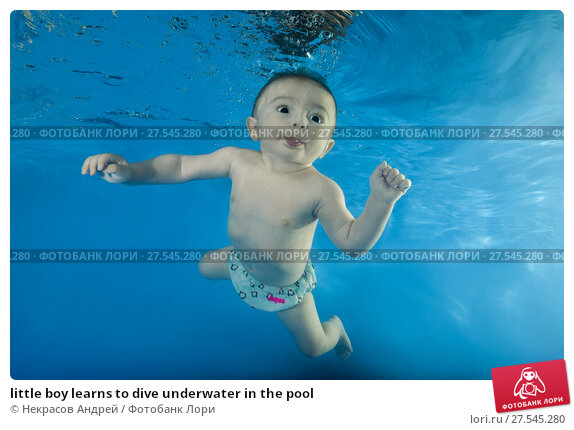
Additional equipment at this time is usually not provided, but it all depends on the level of training of the child and is decided individually by the coach.
The advantage of swimming in the pool from this age is that children begin to absorb information better. They can listen more carefully to the theoretical part of the classes without being distracted from the instructor, which will improve both the quality of training and the progression in learning.
Pool for 9 to 12 year olds
More professional training, which prepares young swimmers for competitive sports, starts on average at 9-12 years. The instructor complicates the teaching methods, developing the child's endurance and focusing on honing the techniques of swimming styles, which contributes to the expansion of the young swimmer's theoretical knowledge along with skills in this sport.
Summing up, it is worth noting that you can start taking your child to the pool at different ages, depending on the desire of the child and parents - just learn to swim and improve health or start a sports career.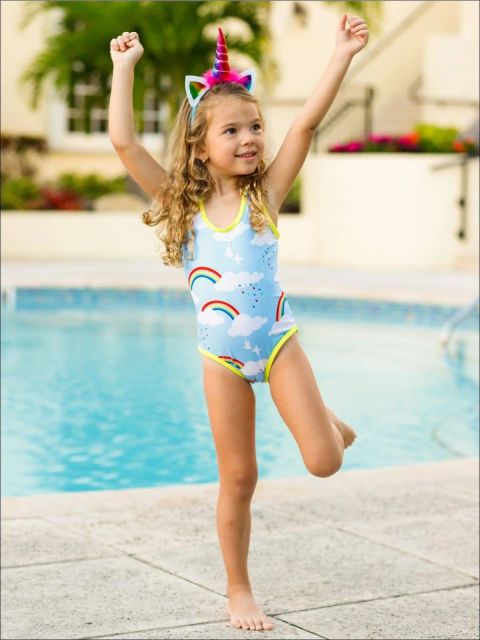 Of course, the desire of the child himself is very important. The desire of the baby to go swimming can also be influenced by his coach, so the choice of an instructor must be approached most carefully. When a teacher is loved, then the children go to his classes with great pleasure. And this is the general success of the parents and the coach.
Of course, the desire of the child himself is very important. The desire of the baby to go swimming can also be influenced by his coach, so the choice of an instructor must be approached most carefully. When a teacher is loved, then the children go to his classes with great pleasure. And this is the general success of the parents and the coach.
At what age should a child be allowed to swim? - this question should be divided into two separate questions: "From what age is it POSSIBLE?" and "From what age DO I NEED?" (or "From what age is it BETTER to send children to study in the pool?").
To the first question ("From what age is it POSSIBLE?"), the answer will be: - or Methods - simply on the basis of a pseudo-scientific method, with the prospect of epilepsy predicted by Professor Savelyev in 8 cases out of 10, with the result in the form of almost irremediable incorrect swimming skills in a child (which is a guaranteed "fat cross" on the prospect of further studying with conscientious professional Coaches, become a good swimmer and swim regularly for life for the sake of health and fitness), as well as all the other "charms" of this Path, described in detail by us in a huge article about Early Swimming.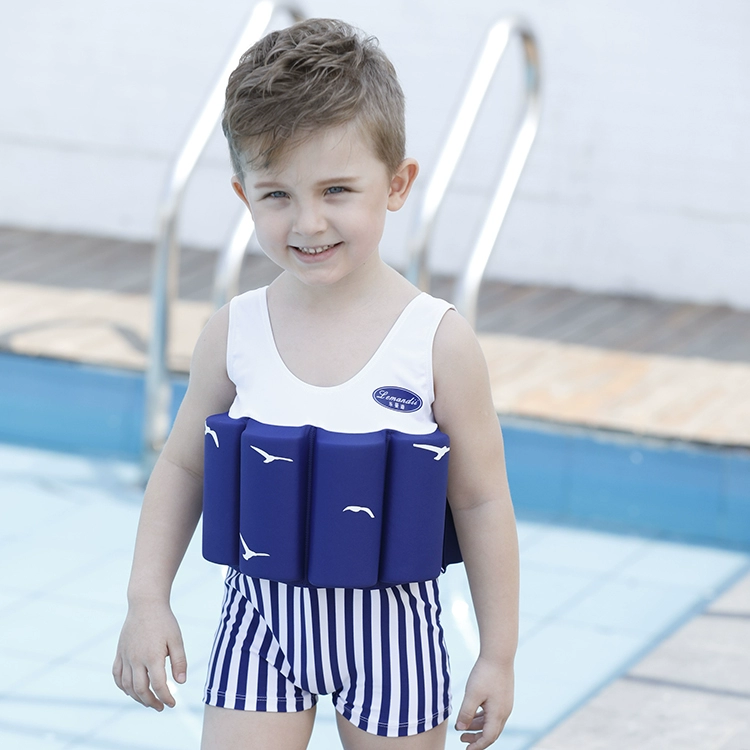
This is the Path from the series "Hurry up - you make people laugh", but they usually find out about it "when the train has already left", because among the debilitated "dark people" (traditionally loving everything "magical" and aimed at the unrealistic "development" of the child), fooled by the massive propaganda of "interested people" in the media and, especially, on the Internet (moreover, already fooled to such a degree of insanity that no one even is not interested in WHO, according to qualifications and BY WHAT METHODOLOGY, these supposedly "very useful classes" with a crumb, although there are completely unskilled people, and there is no Method at all! - You do not agree with this? OK, then give a link to such a Method and to qualified Specialists working on it!)
- this Path is usually regarded (by those who believe in aqua-sectarian tales) as "Very progressive", "Only for the most advanced and conscious", "Extremely useful for a child", etc. - in strict accordance with the Dunning-Kruger effect.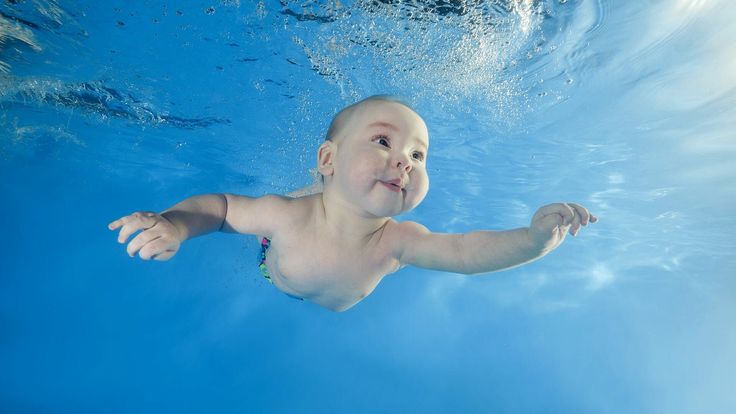
But if we put the question like this: "From what age is it NEEDED?" (or "From what age is BETTER?"), i.e. we are talking exclusively about common sense, proven by generations, where the Goal for one part of the parents is: "It's just good to teach swimming so that the child becomes a good swimmer and swims all his life for the sake of health and fitness" (i.e. "to swim was friends," as parents often say), and the other, more ambitious one is "Sports and sports results", then the answer of any specialized qualified specialists, like us, who have worked in swimming pools all their lives, will be:
Previous Chapter
Coaches' answer to the question "At what age is it better to start training?"
- Answering the question “From what age is it BETTER to start swimming?”, we proceed from the fact that the goals of parents who intend to teach their child IN GROUP FORMAT are very different:
- - Some parents want their baby to just go to the pool and had regular classes with a qualified Teacher for a number of years, so that during this time he was qualitatively trained and became, as a result of these classes, not a champion, but simply a more or less tolerable swimmer-surgeon by the age of majority.

- The most suitable for this purpose is the Sports and health-improving format of classes, and the optimal time to start classes is the age of 6-7 years. The latest is 8 - 9 years. The earliest is 4 - 5 years.
- - Those parents who set sports goals for themselves need a Sports format of classes. Here the most optimal time to start classes is the age of 5-6 years. The latest is 7 years. The earliest is 4 years.
- * Fitness Club format will not be discussed here, because, in most cases, these are low-quality classes.
- Thus, and most colleagues will agree with this, the most optimal age to start teaching children to swim IN A GROUP FORMAT, regardless of their gender and the goals of their parents - is:
-
6 years
- which is suitable for all formats of classes - both for Sports and for Sports and Recreation. - * "for Sports and for Sports and Recreation" - this, of course, is a question of the distant future, because. all this "sportiness" or "sports and health" begins to differ from each other only after the end of the Primary Education, which is exactly the same for all future "formats".
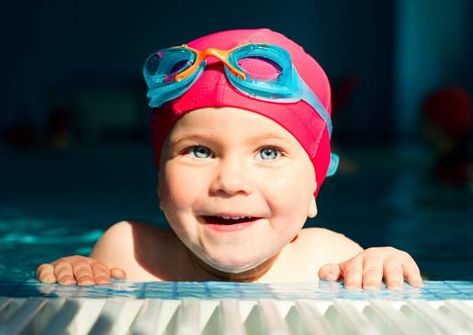
- - this is for those who ask the question: "When to give to professional swimming / to the professional section?".
- They need to understand that here everyone will first have classes in the paddling pool (just like in the school where the elementary school comes first) - where they teach the basics, and professional (i.e. "sports") - this is already later , just like a special school in a school. And most of this "special school", by the way, is not needed!
- + See also: How quickly do children learn to swim - the answer to a topical question for parents
- ** EXCEPTION :
- For the few parents who:
- 1. Has its own pool (not chlorinated according to SanPiN standards, like all other pools)
- 2. Has the financial ability to educate a child IN INDIVIDUAL FORMAT by an experienced (in work with this age category of children) Qualified Trainer
- - it is permissible to start classes IMMEDIATELY after year (Our offer for classes with kids from one to 4 years old)
- The importance of what is necessary from the very beginning to “lay the foundation” correctly (having developed and consolidated the correct swimming skills in the child), and for this you need to have a First Coach - a Real Coach .
 .. - we hope you understand ...
.. - we hope you understand ... - Therefore, parents just need to decide in advance on the Goals and the very format of classes (Sports or Sports and Recreation) and, not paying attention to various "stoned" fools-advisers who have only one super-valuable idea in their heads: "It is necessary how You can start early!" and false confidence that amateur performance and / or false Coaches, that is, people without specialized qualifications, are now massively offered to the consumer (under the guise of specialized Teachers) both on the Internet and in ordinary Pools and, especially , in Fitness Clubs,
- - just slowly look for the most suitable place for future classes (collecting information about specialists working there from other parents), and, having previously looked at such a place, you need to go there and find out what qualifications and experience the specialists work there (and, most importantly, how can you be sure of this by looking at the documents of the "teachers" offered to you there, because at this, the most important point, fools "who trust the word of the Pool Administrator" are now very often deceived!) and from what age do they take children there .
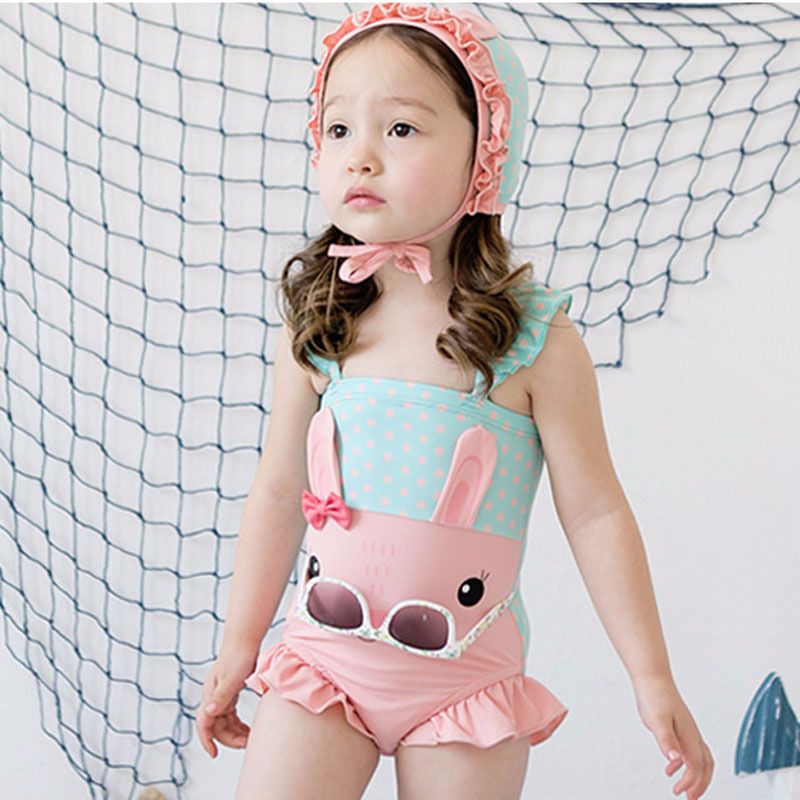
- And before you take your child to the pool, think again on the topic "Is my child, at this age, already ready for such group activities?" - That's all!
- * By "suitable place" we mean a place where all the necessary conditions for high-quality education of non-swimming babies are met, which are detailed both in this article (the last chapter of which you are now reading), and in other articles located on our website ( see the menu item "Children" or the menu item "Articles"), the most important of which, of course, are such conditions as:
- * Separate chapters of this article are devoted to each of these points, which we hope you have already read, and those who have not read it yet will read it by clicking the links.
- ** Let's emphasize once again that the Three Most Important Conditions mentioned below (+ the initial absence of wrong skills!) - they are the cornerstone of the success of this whole business, which ultimately boils down to developing and consolidating the right skills in the trainees swimming skills, then passing into the "Correct" Technique!
- 2.
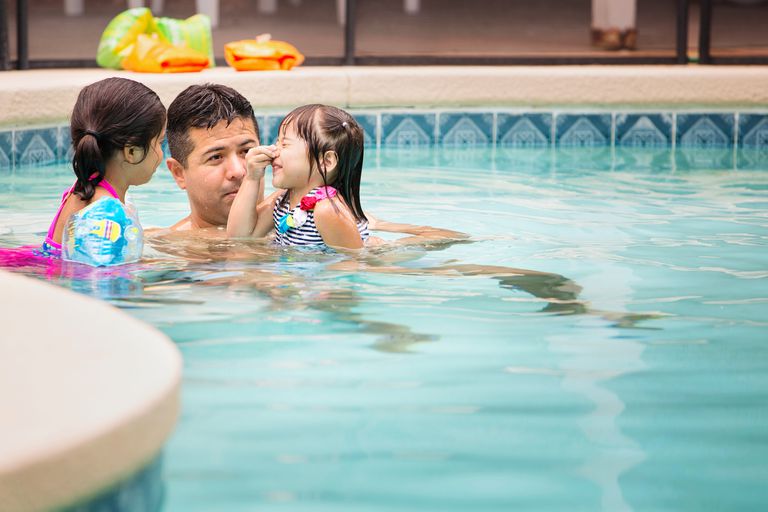 The "correct" Coach, i.e., in the past, a professional swimmer of the CCM level / Master of Sports, and now a highly qualified Teacher with a Higher Education (and, highly desirable - with a great coaching experience!), Who, in his time, for 5 years he was taught in a specialized university how exactly to teach others the ability to swim according to the very scientifically based Method, according to which, once, he himself was taught.
The "correct" Coach, i.e., in the past, a professional swimmer of the CCM level / Master of Sports, and now a highly qualified Teacher with a Higher Education (and, highly desirable - with a great coaching experience!), Who, in his time, for 5 years he was taught in a specialized university how exactly to teach others the ability to swim according to the very scientifically based Method, according to which, once, he himself was taught. - 3. "Correct" Pool, specially adapted so that the "Correct" Trainer can work there according to the "Correct" Method, i.e. a special children's "paddling pool", where trainees can stand confidently - so that the depth is, at most, "chest-deep". "Up to 7 years - the depth should be no more than 60 cm," says the above film of the WFP, in SanPin 2.1.2.1188-03 and in a circular letter from Rospotrebnadzor.
- As you can see, everything here is not so complicated! ;-)
- And if you are interested in all this in more detail, then you need to look at the Section "Pests / Board of Honor" - Video examples of right and wrong activities, specially created in order to illustrate with concrete examples what (traditionally) considered in the coaching community as Bad and Good, i.
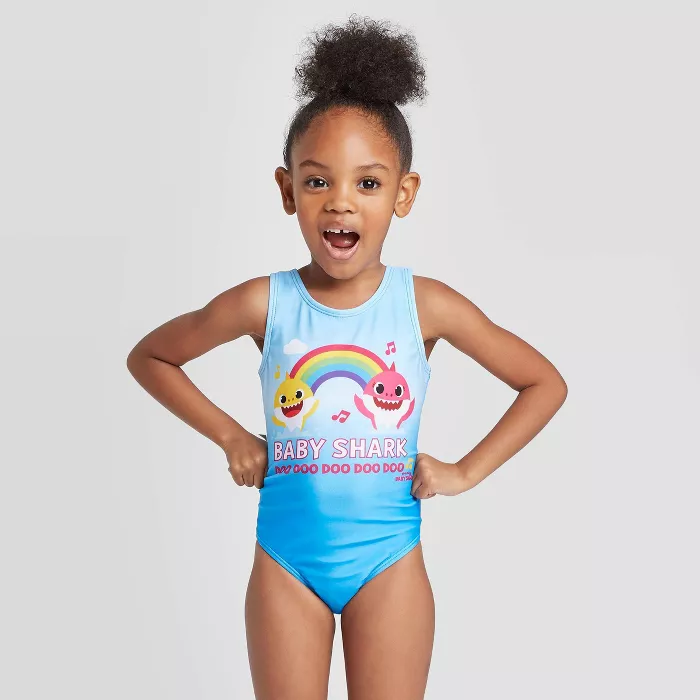 e., in other words, what (i.e. what specific actions and techniques) leads to the development of correct or incorrect skills in trainees.
e., in other words, what (i.e. what specific actions and techniques) leads to the development of correct or incorrect skills in trainees. - ** Usually, in most "decent" places, kids are taken to the "splash pool" from the age of 4 - and not earlier! If crumbs of earlier ages are taken, then, in this case, parents should be seriously wary, because. this is already clearly “Artificial expansion of the client base due to UNJUSTIFIED lowering of the age bar (accepted for training)”, and, therefore, with a high degree of probability, we can say (more precisely, suspect!) that it’s not common sense that “rules” in this place, not focusing on the quality of classes and the right skills in the end, but rather, first of all, banal commerce.
- - Let's repeat the main thing: It is much more important that the lessons for the kids are of the highest quality - and, especially, at the very beginning, when the primary skills ("foundation" or "base") are laid, and the age of starting classes is completely unimportant - this can be both 4 years old and 7 years old, because, by the age of 12, both of them will swim exactly the same (at the same level) and even the "sharp coaching eye" will not always guess at what age this one began to practice 12-year-old swimmer - from 4 or from 8.

- One of the most important conditions for obtaining a good result in the end (in the absence of which, even the above-mentioned "Three Most Important Conditions" will have little effect!), Is the initial absence of the trainee's almost incorrigible, strongly fixed incorrect swimming skills, very common recently, as a result of overly early "before coaching" unskilled (parental or "baby-instructor") training, for which now many parents, zombified by the promises of unskilled people about super-health and super-development, are foolishly going without knowing sufficient information on this issue, and being unable to restrain their "unspent parental enthusiasm", sincerely believing that there will definitely be no harm from this initiative of theirs. We wrote about all this in detail in the article “Early Swimming”, which, like all other materials that are extremely necessary reading for parents who want to turn their child into a good swimmer by the age of majority, we strongly recommend reading, because.
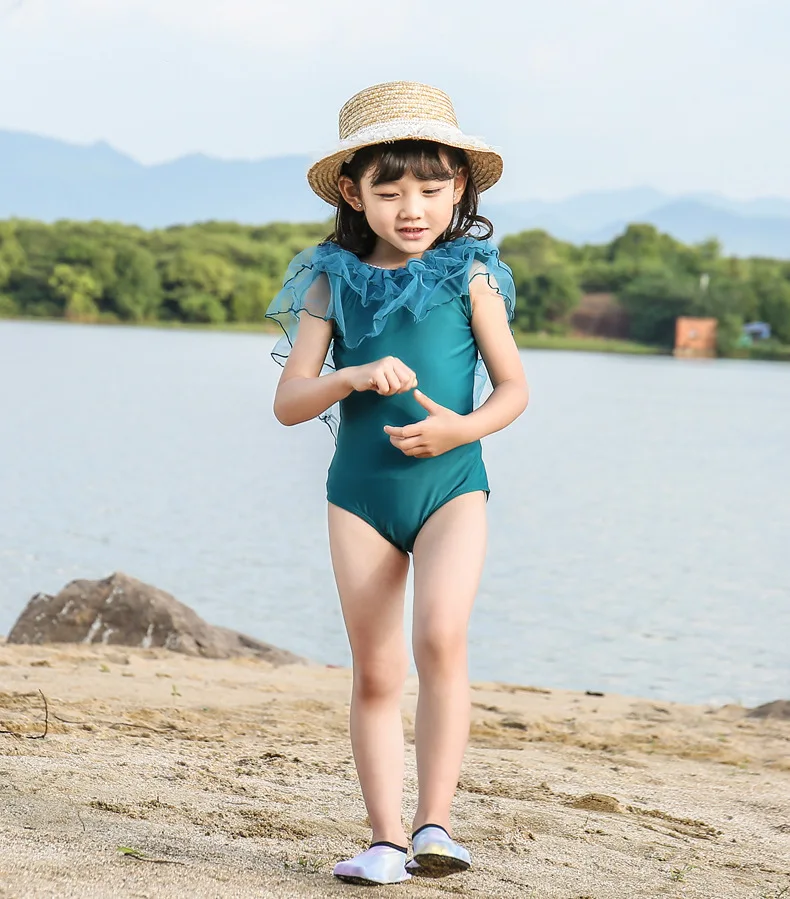 On no other site (or in a book) you will find these topics described in such detail by professionals, illustrated, moreover, by an abundance of video examples.
On no other site (or in a book) you will find these topics described in such detail by professionals, illustrated, moreover, by an abundance of video examples. - In a word - learn the so-called. "mat.chast", consult qualified Teachers and do not make stupid mistakes out of ignorance, i.e. immediately take the baby "from scratch" to a special children's pool to a conscientious qualified professional working according to the classical Method - and then, after years of training, your baby will become a good swimmer!
- * How good it is, of course, depends on the sum of many different factors, but, first of all, on the total amount of quality coaching work invested in him over all the years of training, that is, in other words, on the total amount of quality workouts.
- And in conclusion, especially for those for whom the opinion of our great swimmer Alexander Popov is as authoritative as it is for us, let me quote from his interview, in which he answers the question "From what age is it better to give to swimming?":
Alexander Popov's opinion: "How old do you have to go to the pool?"
- “In my opinion, it is probably right to send a child to a sports section for swimming lessons from about the age of 7, when he goes to first grade - there is some expediency and logic in these actions.
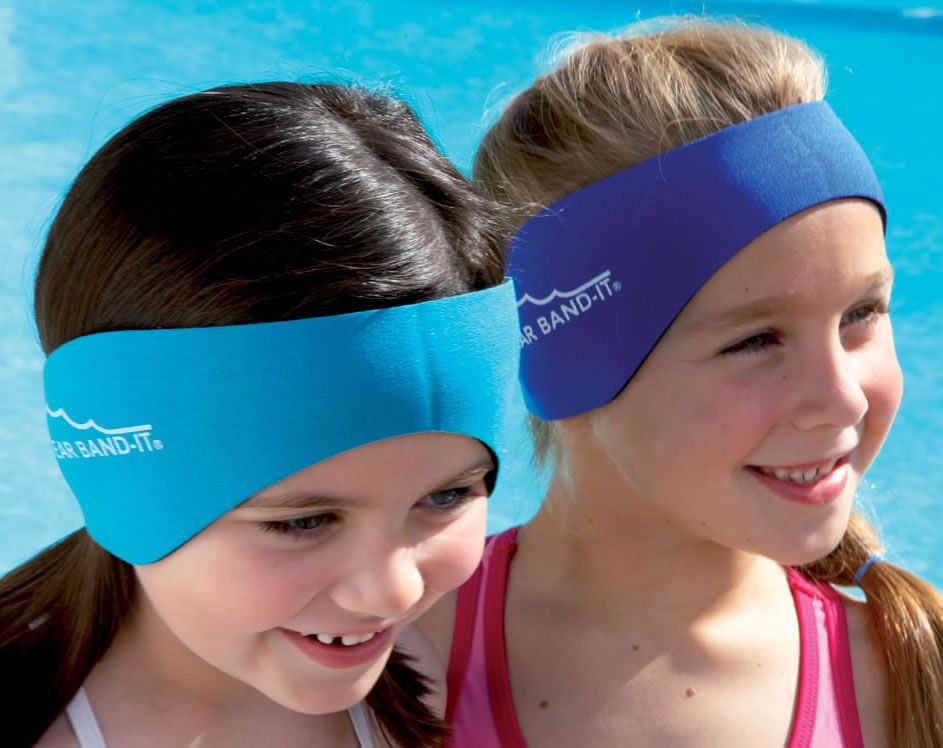 At this time, the child develops both the qualities of self-discipline and the organization of his working day: after school, do homework, then go to training, come to rest. I believe that from the first class you can give. But here it means that the child already has some initial swimming skills.
At this time, the child develops both the qualities of self-discipline and the organization of his working day: after school, do homework, then go to training, come to rest. I believe that from the first class you can give. But here it means that the child already has some initial swimming skills. - (* Here Popov means that from 4 - 5 to 7 years old the stage of the so-called "preparatory swimming" takes place in a special children's "splash pool". He is, of course, talking about the Sports Format !- / * note of the Trainers of the site «swim7»/)
- It is definitely better for a child to study in a group. Because children, by their nature, are prone to playing sports” (C) Alexander Popov
- =========================== ================================================= ===
- - From the point of view of most professional Trainers, it is best (to get the maximum result for the trainees and the maximum return on the coaching work and parental funds invested in the students) to start teaching children "from scratch" at the age of 6 - 7 years, because.
 having worked out for 5-7 years, these children become quite good swimmers. Of course, not at the level of CCM / Master of Sports (although, in principle, this is possible with talent, diligence and a good mentor, but, however, this is not at all a typical case even with the Sports Format of classes), but, nevertheless, quite good swimmers -dischargers (1st or 2nd Adult Category) - for the most part, about the same by adulthood: Video: Teenagers' skills in various styles.
having worked out for 5-7 years, these children become quite good swimmers. Of course, not at the level of CCM / Master of Sports (although, in principle, this is possible with talent, diligence and a good mentor, but, however, this is not at all a typical case even with the Sports Format of classes), but, nevertheless, quite good swimmers -dischargers (1st or 2nd Adult Category) - for the most part, about the same by adulthood: Video: Teenagers' skills in various styles. - In this variant, when "everything is right", and the parents of the kids also get the maximum result "per unit of investment", because, for each dollar invested in the education of their child, parents receive the maximum amount of "goods" they buy here ", i.e. the correct swimming skills developed and consolidated in their children.
- In other words, when parents begin to teach their children to swim strictly at a scientifically based time (set by the Standard Coaching Method) and do it by the hands of experienced highly qualified people - they get, as a result, maximum progress as a result of training, i.
 e. the best swimmer (by adulthood) for less money.
e. the best swimmer (by adulthood) for less money. - As an example of such parental "common sense" - see, for example: A selection of VIDEOS: Teaching Children's Groups by Yu.M. for a year of classes (in total in the academic year from September to May ~ 70 lessons - 2 lessons per week) in the Sports and Recreation Group, i.e. 2 45 minute sessions per week.
- Once again the most important thing!
- - Many now seek to send their baby to swimming as early as possible and, in itself, this, in principle, would seem to be not bad at all ... But something else is bad: very often parents, maniacally pursuing this goal (start as earlier), or engage in amateur activities, or thoughtlessly give their kids to "teachers" of incomprehensible, unclear qualifications - FAKE specialists WITHOUT PROFILE COACHING DIPLOMAS (and / or in DEEP, UNSUITABLE FOR EDUCATION OF CHILDREN), and, as a result, the kids are strongly fixed wrong skills, from which to wean them later, even for a very experienced and conscientious professional (even one who is ready to invest titanic efforts into "retraining"), is almost impossible even in an individual format, and usually it is not possible to "retrain" them at all, especially if the classes are group, because in a group format, there is simply no way to retrain a "problem" child, tk.
 You can't leave other trainees either...
You can't leave other trainees either... - As practice shows, those who came to learn to swim relatively late (even at 8-9 years old) quickly catch up with their peers who go to the pool from 4-5 years old, because. the older the student, the faster he learns.
- Therefore, REMEMBER:
- Starting training as early as possible is not an end in itself, because First, you need to at least find a pool that is suitable in terms of depth (and length) with a qualified Teacher working there (according to the classical Method). If you have found such a place - OK, then there is no point in postponing the start of classes, but if you have not found such a place yet, then look for it, take your time, but DO NOT SEND CHILDREN TO DEEP POOLS UNSUITABLE FOR THEIR TRAINING, DO NOT SEND CHILDREN TO IMPOSTERS WITHOUT TRAINING DIPLOMS, which, as a rule, are simply "bathed in floating facilities." The results of such classes (in terms of acquired swimming skills) are simply catastrophic!
- Therefore, remember the folk wisdom: "If you hurry, you'll make people laugh", don't listen to the "stoned" and buy your child only QUALITY lessons!
REMINDER TO THE CONSUMER: What makes up the quality of the Coaching Services
- The quality of the Swimming Services consists of the presence of a combination of the following prerequisites:
- - and, even more so, not according to some someone's "notion" from the series "That's how voices whispered to me in my head", issued by the authors for the Method of teaching the ability to swim - for example: from "Mevis-1" , Firsova or Levchuk, etc.
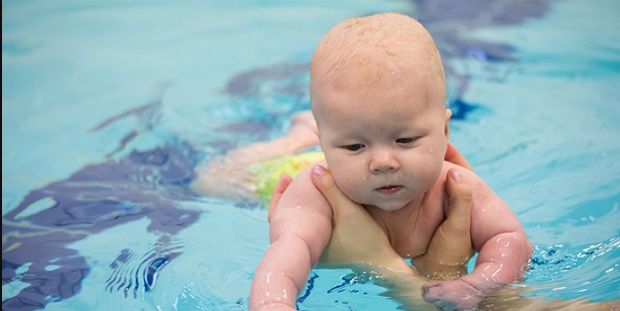
- * Science-based methodology is the method by which future Trainers are taught to work in a university for 5 years.
- such Coach who:
- a) at first, he himself was once professionally engaged in sports swimming (and not diving and not synchronized swimming, for example - although they have exactly the same Diplomas!) and achieved CCM / Master of Sports results in it ,
- b) then studied at a university for 5 years to teach others how to swim using a scientifically based method and received, based on the results of the training, a specialized coaching qualification and a Diploma of the university confirming its receipt:
- c) after graduating from the university and obtaining a profile coaching qualification, the Coach has worked in the profession for many years and now has a long experience of coaching (at least 10 years of experience is highly desirable) - moreover, he has it in the field of Primary Education, and not in the Sports of High Achievements, where the specifics are completely different, because there is a completely different contingent of trainees who are at the level of the highest sportsmanship - and, accordingly, the Coaches there have completely different tasks, in contrast to the Coaches of Initial Training, who teach basic swimming skills "from scratch" - and up to the level of "1st adult category / KMS".

- It must be understood that the main way to deceive people when providing them with coaching services, due to the fact that the responsibility for this is purely symbolic - is Deception on the "quality of a Coach", i.e. when the Client is offered a person who does not have a profile qualification, but at the same time, he is cynically told that he will receive coaching services, allegedly from a real (qualified) Swimming Coach.
- * Such swindlers are very easy to recognize, because when offering their Training Services to people, they never show the Clients “Documents for the offered Goods” (i.e. Coaching Diplomas - in which the qualifications are indicated) in advance - so , as we do in the resumes of Trainers, for example, in order to separate ourselves from the crowds of swindlers who are now massively pretending to be our colleagues.
- Thus, if you are offered Services, but, at the same time, they do not show the Coaching Diploma of the proposed Teacher, then you should know: in 90% of cases - this means a guaranteed fraud (you are offered a person who does not have a profile coaching qualification), and in 10% of cases (when there are Diplomas, but for some reason they are not shown) - this simply means banal Russian rudeness, when Clients are treated disrespectfully, believing: “If they need to make sure that they have real coaching qualifications and they don’t want to take our word for it, then let them then ask to show them coaching documents - maybe we will show them.

- Remember that when choosing coaching services, you should prefer those that show you the qualification documents of the Coaches offered to you (ie their University Diplomas) and “everything is clean” in them. And that's the first thing!
- 3. Also, you need to know that scientifically based methodology, at the stage of initial training, does not provide for any other swimming facilities, except for a swimming board - more. And the lessons themselves (with those who cannot swim) must necessarily be carried out in a "shallow place", i.e. where the trainee can stand confidently and the depth is "up to the chest" - more.
- The presence of a combination of the above necessary conditions (Methodology + Specialist trained to work according to it + proper conditions for classes) - invariably gives the maximum final result in the form of good (maximum possible) swimming skills for trainees obtained by them in the shortest possible time.
And + a couple more words about "stoned"
- Recently we came across a very funny mother on babyblog (on babyblog and similar resources, such mothers simply swarm, but this one outdid many with her "stubbornness"!), Who has the "makings" a child in swimming was allegedly identified at the age of 2 by some “coaches”, while she writes about hers in one of her comments: “, it turns out that we have the most correct trainer, who teaches the most correct technique ", and then she herself says:" The last time our coach told me that there was no need to work more on holding the breath, Fedor had already proved everything to everyone .
 . . ":
. . ": - Taking this opportunity, let's repeat what we learned in this example.
- 1. "Inclinations" and "Perspective" in swimming are determined closer to the CCM, and certainly not in 2 - 3 years.
- * So, for example, "Inclinations" and "Perspective" for the Sport of High Achievements for Alexander Popov were determined by Gennady Turetsky when Popov had the 1st adult category.
- 2. “ teaching according to the most correct technique ” - they teach, in fact, not according to technique (so even to say somehow not in Russian!), but, usually, according to some Method... - according to scientifically sound, pseudo-scientific, or they work without any Method at all, i.e. they simply conduct classes according to the principle "As God puts on the soul."
- 3. Such a Method that would provide for at least some “work on holding the breath” for babies (as well as the start of classes at 2 months old) - this simply does not exist on planet Earth yet, but such manipulations are carried out with crumbs (expediency which are explained by the fact that such manipulations “develop” and “preserve” the breath-holding reflex in crumbs - therefore, this should be done when teaching children to swim) only all kinds of unskilled swindlers from the so-called.
 "baby swimming", the logic of which stems from the so-called. "Firsov's Methods" (which, in real life, is not even a Method, but just a banal populist brochure advertising a pseudo-scientific Method)
"baby swimming", the logic of which stems from the so-called. "Firsov's Methods" (which, in real life, is not even a Method, but just a banal populist brochure advertising a pseudo-scientific Method) - 4. But when, with all this, they also say (moreover, as about the norm!) that the baby “proves” something to someone (because, according to their logic, this it’s normal when, at that age, a child is already “proving” something to someone - which is pure psychiatry in itself!), then there is no longer any doubt about what kind of story they have there - what is there they have a "trainer", what kind of "method" and how exactly this poor Fedor proves something to them there ...0071
- How it is done in practice - see the video HERE - namely Plots: 1, 3, 6 and others.
Special thanks to deputy Grigoriev Alexander Anatolyevich
- I would like to say a separate coaching thank you to the deputy of the Kirov City Duma, the head of the public organization "Council of Fathers" - Grigoriev Alexander Anatolyevich, for not only understanding the common sense propagandized by specialized specialists, but and for the fact that he also replicates this information on his own website.
 Thank you for this, Alexander Anatolyevich! We wish we had more such reasonable people's deputies!
Thank you for this, Alexander Anatolyevich! We wish we had more such reasonable people's deputies! - Thank you! We were not even offended by a rewrite of SUCH QUALITY ;-)
P.S. to the topic “How to attach a child to quality education in the swimming pool”
- From the conversation of Shcherbakova Yu.M. with the Parent on the forum 08/26/08:
- Quote:
- alzhbetka Aug 26 2008, 08:53 PM
- qualified. That's why I wanted to know0071
- Answer:
- Yes, indeed, it is written on the page obuchenie_plavaniu_trener-samozvanec.html. - And although it was written several years ago, I don't think the situation has changed for the better.
- And this, in fact, is not only in "ХХХХХХХ", it is, alas, practically in all pools - certified Coaches and people who, although they are called coaches (by position), work interspersed, but in fact they didn’t study as a swimming coach at the institute for 5 years, they themselves didn’t seriously engage in sports swimming and, accordingly, they didn’t have any more or less significant categories in swimming - let’s say: CMS level - Master of Sports, they also don’t have any, more or less significant coaching experience - they do not have the same positive results of work (in the form of well-trained kids), which it would not be a shame to show people (at least in the form of a video posted on youtube) and say: " These are the skills of the children trained by me, I offer you exactly this product.
 If you bring your baby to me, then he will be guaranteed to swim in about the same way after about the same number of lessons. "
If you bring your baby to me, then he will be guaranteed to swim in about the same way after about the same number of lessons. " - But where did you see such reasonable parents who are looking for just such Coaches? As a rule, they give to someone no matter what, without asking any questions, without finding out the degree of quality of the proposed training. It's a pity! After all, this is both "money down the drain" and the baby will be a bad swimmer :-( the dynamics will continue. hire the best qualified personnel), post ads on the Internet up to the following: "We invite a swimming coach - any education, any work experience" - For more details, see here: Training in Fitness Clubs
- Isn't it clear what then happens to the "personnel issue" in simple - cheaper pools???
- Of course, we cannot constantly monitor all pools and Fitness Clubs for the presence of fake Coaches, and this is not our task. -1:
- "Doing Investigative Activities, finding out if the Mavis 1 guys (or anyone else) are Certified Coaches or Self-Taught Coaches, we are not going to do it for you or anyone else.
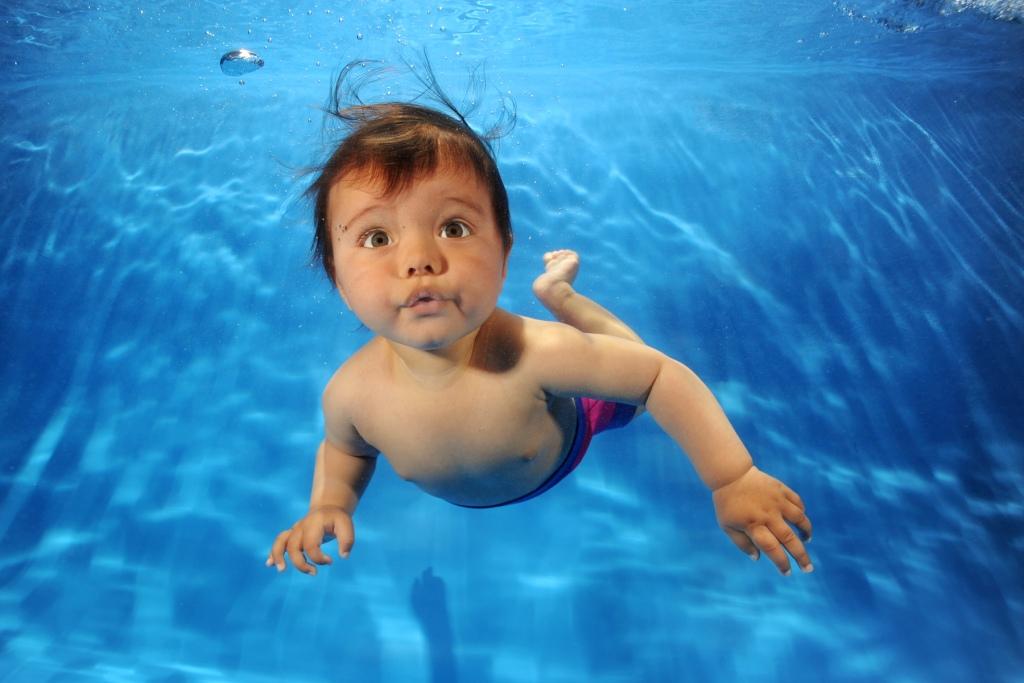 This Excuse me, your business is to find out the quality of the product or service for which you intend to pay money.
This Excuse me, your business is to find out the quality of the product or service for which you intend to pay money. - I can only add that a "parent" who called us once said: "The child has been going to the Olympic swimming pool for 2 years, but he still can't swim. ... They teach in vests and armlets, we, parents, watch how the classes go ...
- As you understand, we cannot double-check such messages...
- So, it's up to the buyer, when he is offered a service, to find out: "Who will directly provide the service to us?" - A qualified specialist? - Excellent How can you be sure of this? Can you illustrate with some documents your statement that it is the Qualified Specialist who will provide the service to us? - Or should we "take our word for it"???0071
- - Again, HOW QUALIFIED??? Does he have a coaching diploma or does he only have a coaching certificate?
- How much experience does he have in the field of teaching swimming to children of this particular age category?
- Does he have any personal achievements (ranks or sports titles) in this sport that he received at one time?
- If a person is interested in receiving a quality service, then he cannot but ask these simple questions, which boil down to clarifying the true "quality" of a Specialist.
